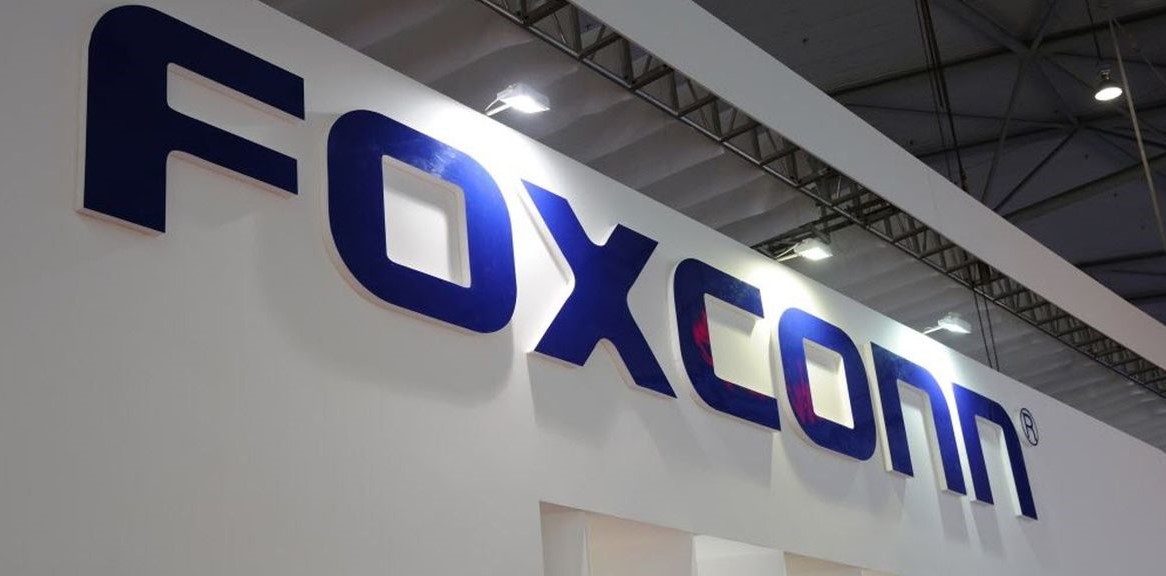Foxconn Interconnect Technology (FIT), a subsidiary of Taiwan’s Foxconn, has announced plans to begin construction of its first manufacturing facility in the Middle East in December 2025. The plant will be located in Saudi Arabia and will specialize in producing electric vehicle (EV) chargers, with operations scheduled to commence in 2026. This development marks a pivotal step in FIT’s global strategy to expand into the rapidly growing EV sector, where demand for reliable, high-quality charging infrastructure is increasing due to accelerating vehicle electrification, government incentives, and heightened environmental awareness. By establishing a presence in Saudi Arabia, FIT aims to strengthen its footprint in the Middle East, a region that is actively pursuing sustainable mobility solutions under national policy initiatives and Vision 2030 reforms.
Strategic Expansion into Electric Mobility
The Saudi Arabian facility is the outcome of a joint venture between FIT and Saleh Suleiman Alrajhi & Sons, officially named Smart Mobility. The collaboration is strategically aligned with Saudi Arabia’s Vision 2030, which sets ambitious targets for vehicle electrification and aims for 30% of the kingdom’s vehicles to be electric or hybrid by 2030. Prince Fahad bin Nawaf Al Saud, CEO of Smart Mobility, emphasized the significance of this facility in advancing Saudi Arabia’s clean mobility objectives. The joint venture leverages FIT’s technological expertise and Alrajhi & Sons’ local market knowledge, creating a synergy that accelerates the deployment of EV infrastructure and establishes a scalable model for future investments in the region.
FIT’s push into EV infrastructure is further supported by its recent acquisitions: Germany’s Prettl SWH Group (rebranded as FIT Voltaira) in 2023 and Auto-Kabel Group in 2024. These acquisitions have enabled FIT to enhance its technological capabilities, particularly in high-efficiency EV chargers, advanced battery interface solutions, and connectivity systems. By integrating these technologies, FIT can offer next-generation solutions that meet international standards while addressing the unique requirements of Middle Eastern EV markets. These strategic moves reinforce FIT’s position as a global player in electric mobility and reflect the company’s long-term vision of leading the EV ecosystem through innovation, reliability, and operational excellence.
Economic and Industrial Impact
The new Saudi facility is expected to have a significant economic impact on the kingdom. It will create hundreds of direct jobs in manufacturing, engineering, and technology, and stimulate ancillary industries such as logistics, software development, and renewable energy integration. By producing EV chargers domestically, Saudi Arabia can reduce reliance on imports, minimize logistical delays, and encourage local supply chain development. Analysts predict that FIT’s auto mobility division could generate $700 million in revenue in 2025, with this facility contributing to regional growth and supporting the Middle East’s broader EV market expansion. Furthermore, the project will attract international attention, potentially drawing further investments from global EV and technology companies interested in the Middle Eastern market.
Integration with Saudi Arabia’s EV Market
Saudi Arabia is aggressively pursuing clean mobility solutions under Vision 2030, with goals including carbon emissions reduction, fleet electrification, and the creation of a localized EV component industry. FIT’s investment complements these objectives by supplying state-of-the-art charging technology that supports urban electrification initiatives and enhances public and private EV adoption. Cities like Riyadh, Jeddah, and Dammam are expected to benefit from the deployment of fast-charging stations and smart grid integration. By facilitating fleet electrification for public transportation, ride-sharing, and corporate fleets, FIT contributes directly to creating a robust EV ecosystem that aligns with national sustainability and energy diversification plans.
The factory will also function as a regional hub for FIT’s operations in the Gulf Cooperation Council (GCC) markets, including the UAE, Qatar, and Kuwait. Saudi Arabia’s geographic centrality provides logistical advantages, allowing FIT to efficiently distribute chargers across the region. This strategic positioning will enable FIT to deliver cost-effective, high-quality EV infrastructure while responding rapidly to growing demand. The move also ensures that the company is well-positioned to capitalize on regional policy incentives aimed at accelerating the adoption of sustainable transportation.
Technology and Innovation
Beyond manufacturing, the Saudi facility will serve as a center for research and development in smart charging solutions. FIT intends to incorporate renewable energy sources, vehicle-to-grid (V2G) technology, and advanced monitoring systems into its chargers, enabling efficient energy management and network optimization. Such innovations will help Saudi Arabia develop a cutting-edge EV ecosystem while positioning FIT as a technological leader in the Middle East.
Additionally, FIT is exploring partnerships with universities and technical institutes in Saudi Arabia to cultivate local expertise in EV technology and battery engineering. By investing in talent development, FIT ensures long-term sustainability of the local workforce and builds a knowledge base that supports continuous innovation. The company’s focus on homegrown R&D aligns with Saudi Arabia’s broader economic diversification strategy, promoting industrial innovation and technology localization.
Market Trends and Competitive Landscape
The Middle East is emerging as a key market for electric vehicles and EV infrastructure, driven by government incentives, urbanization, and environmental awareness. FIT’s investment comes at a time of surging global EV demand, with projections indicating exponential growth in the coming decade. Other competitors, including ABB, Siemens, and Tesla, have also announced infrastructure projects in the region, making it a highly competitive landscape. FIT’s local manufacturing capabilities give it a strategic advantage in terms of reducing lead times, lowering production costs, and customizing solutions for regional market conditions. By establishing a production hub in Saudi Arabia, FIT ensures rapid deployment of EV chargers across GCC countries and strengthens its ability to respond to evolving consumer and industrial demands.
Regional Implications and Global Strategy
The Saudi facility forms part of FIT’s broader global expansion strategy into EV infrastructure markets. The Middle East serves as a logistical bridge between Europe, Asia, and Africa, allowing FIT to efficiently scale production and distribution. The facility strengthens FIT’s regional market presence while supporting Saudi Arabia’s renewable energy goals and Vision 2030 commitments. FIT’s strategy demonstrates the convergence of sustainability, innovation, and economic development, highlighting the role of multinational technology companies in shaping regional mobility ecosystems.
The facility is also expected to foster regional collaborations with energy providers, transportation authorities, and smart city projects, positioning FIT as a critical partner in advancing clean mobility infrastructure. This approach aligns with international sustainability targets while promoting industrial growth and technological adoption across the Middle East.
Foxconn Interconnect Technology’s Saudi Arabia EV charger factory represents a strategic convergence of technology, sustainability, and economic development. By supporting Saudi Arabia’s Vision 2030 objectives, generating employment, facilitating technology transfer, and accelerating EV adoption, FIT is positioning itself as a key driver of the Middle East’s electric mobility transformation. As construction progresses, the project is expected to set new benchmarks for EV infrastructure development, inspire further investment in clean transportation, and showcase the potential of public-private partnerships in achieving sustainable mobility goals.
This facility highlights how multinational companies can contribute to regional economic growth while simultaneously advancing global sustainability and technological innovation objectives. With the Middle East poised for exponential EV adoption, FIT’s strategic investment ensures it will be at the forefront of this emerging market for years to come.







